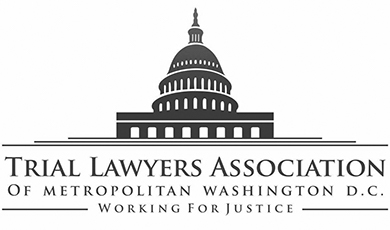The Vital Role of Personal Injury Lawyers in Society: Holding Corporations and Insurance Companies Accountable
Posted on Monday, May 20th, 2024 at 8:25 pm
In the complex web of modern society, personal injury lawyers play a crucial role in ensuring justice and accountability. These legal professionals specialize in representing individuals who have been injured due to the negligence or wrongdoing of others, including corporations and insurance companies. Their work not only helps individuals recover damages for their injuries but also serves as a critical check on powerful entities, promoting safety, fairness, and ethical behavior.
The Function and Importance of Personal Injury Lawyers
Personal injury lawyers are advocates for those who have suffered harm. Their primary function is to provide legal representation to individuals who have been injured physically or psychologically due to the negligence, recklessness, or intentional misconduct of others. This includes a wide range of cases such as car accidents, medical malpractice, workplace injuries, product liability, and slip-and-fall accidents.
Key Responsibilities:
- Legal Representation: Personal injury lawyers represent their clients in negotiations and court proceedings, ensuring their rights are protected and they receive fair compensation for their injuries.
- Investigation and Evidence Gathering: They conduct thorough investigations to gather evidence supporting their clients’ claims. This includes collecting medical records, accident reports, witness statements, and expert testimonies.
- Negotiation: A significant part of a personal injury lawyer’s job is negotiating with insurance companies and defense attorneys to reach a fair settlement. This often involves complex legal and financial considerations.
- Litigation: If a fair settlement cannot be reached, personal injury lawyers are prepared to take the case to court. They present evidence, question witnesses, and make compelling arguments to secure a favorable verdict for their clients.
- Advisory Role: They provide essential legal advice to clients, guiding them through the legal process and helping them make informed decisions about their cases.
Ensuring Accountability: The Role Against Corporations and Insurance Companies
Personal injury lawyers are pivotal in holding corporations and insurance companies accountable for their actions. This accountability is essential for several reasons:
1. Promoting Corporate Responsibility:
Corporations have a legal and ethical duty to ensure their products and services are safe for consumers. When companies fail to meet these standards, personal injury lawyers step in to hold them accountable. High-profile cases, such as those involving defective products or unsafe working conditions, often lead to significant changes in corporate practices, making workplaces and products safer for everyone.
For instance, in the case of product liability, personal injury lawyers have taken on large corporations to ensure that dangerous products are removed from the market. This not only compensates the victims but also serves as a deterrent against future negligence. Cases like the Ford Pinto litigation, where Ford was found to have ignored safety concerns to save costs, highlight how personal injury lawyers can drive corporate accountability and safety reforms.
2. Challenging Insurance Companies:
Insurance companies are in the business of managing risk, but they often prioritize profit over the fair treatment of claimants. Personal injury lawyers ensure that insurance companies honor their commitments and provide fair compensation to those who are injured. Insurance companies typically have vast resources and legal teams dedicated to minimizing payouts, making it difficult for individuals to receive what they are rightfully owed without professional legal assistance.
Personal injury lawyers level the playing field. They understand the tactics used by insurance companies to deny or reduce claims and have the expertise to counter these strategies effectively. By challenging unfair practices, they help ensure that injured parties receive the financial support necessary to cover medical expenses, lost wages, and other associated costs.
3. Ensuring Legal Compliance and Ethical Conduct:
Through litigation and settlements, personal injury lawyers help enforce regulatory standards and ethical conduct. When corporations and insurance companies face legal consequences for their negligence or unethical behavior, it sends a strong message that compliance with safety standards and fair practices is non-negotiable. This legal pressure encourages companies to adhere to regulations and invest in better safety measures and ethical practices.
For example, in environmental lawsuits, personal injury lawyers have been instrumental in holding corporations accountable for pollution and environmental damage. These cases not only provide restitution for affected communities but also push companies to adopt more sustainable and responsible practices.
Case Studies Highlighting the Impact
1. The Erin Brockovich Case:
One of the most famous cases illustrating the role of personal injury lawyers in holding corporations accountable is the Erin Brockovich case against Pacific Gas and Electric Company (PG&E). Brockovich, a legal assistant, and her firm uncovered that PG&E had contaminated the water supply of Hinkley, California, with hexavalent chromium, causing serious health issues among residents.
The case resulted in a $333 million settlement for the affected residents, one of the largest in U.S. history at the time. This landmark case not only provided justice for the victims but also raised public awareness about corporate environmental responsibility and the need for stringent regulatory oversight.
2. The Tobacco Litigation:
In another significant example, personal injury lawyers played a pivotal role in the litigation against major tobacco companies. These companies were found to have deliberately misled the public about the dangers of smoking, leading to widespread health issues. The lawsuits culminated in the Master Settlement Agreement of 1998, where the tobacco industry agreed to pay $206 billion to states over 25 years and implement significant changes in their marketing practices.
This litigation demonstrated how personal injury lawyers can drive public health improvements and corporate accountability. It also highlighted the power of legal action in uncovering corporate misconduct and securing substantial compensation for public health initiatives.
3. Auto Safety and the Ford Pinto Case:
The Ford Pinto case is another notable example where personal injury lawyers held a corporation accountable for prioritizing profits over safety. In the 1970s, it was revealed that Ford had known about a design flaw in the Pinto’s fuel system that could cause the car to explode in rear-end collisions but chose not to fix it due to cost concerns.
Legal actions taken by personal injury lawyers resulted in significant settlements for victims and pressured Ford to improve their safety standards. This case underscores the role of personal injury lawyers in bringing about industry-wide safety reforms and protecting consumers from dangerous products.
The Broader Social Impact
The work of personal injury lawyers extends beyond individual cases; it has a broader social impact by fostering a culture of accountability and justice. Their efforts contribute to:
1. Public Awareness and Advocacy:
High-profile personal injury cases often garner significant media attention, raising public awareness about safety issues, corporate negligence, and the importance of regulatory compliance. This awareness can lead to greater consumer vigilance and advocacy for stronger protections and regulations.
2. Legislative and Regulatory Changes:
Personal injury lawsuits can drive legislative and regulatory changes. When legal actions reveal systemic issues or gaps in existing regulations, they can prompt lawmakers to introduce new laws or amend existing ones to better protect the public. For example, the lawsuits against asbestos manufacturers led to stricter regulations regarding asbestos use and workplace safety standards.
3. Deterrence of Negligent Behavior:
The financial and reputational consequences of personal injury lawsuits serve as a deterrent to negligent behavior. Companies are more likely to invest in safety measures and ethical practices if they know that failure to do so could result in costly lawsuits and damage to their reputation. This deterrence helps prevent future harm and promotes a safer, more responsible business environment.
4. Empowerment of Individuals:
Personal injury lawyers empower individuals by providing them with the legal tools and support needed to stand up against powerful entities. This empowerment is particularly important for marginalized and vulnerable populations who might otherwise lack the resources to seek justice. By advocating for these individuals, personal injury lawyers help ensure that everyone has access to justice, regardless of their socio-economic status.
Challenges Faced by Personal Injury Lawyers
Despite their important role, personal injury lawyers often face significant challenges. These include:
1. Public Perception:
Personal injury lawyers are sometimes viewed negatively due to misconceptions and stereotypes perpetuated by media portrayals. They are often labeled as “ambulance chasers” or accused of being motivated solely by profit. This negative perception can overshadow the vital work they do in advocating for victims and promoting justice.
2. Resource Disparities:
Corporations and insurance companies typically have vast resources at their disposal, including large legal teams and financial reserves. Personal injury lawyers, particularly those in smaller firms, may struggle to match these resources, making it challenging to take on complex and protracted cases.
3. Legal and Regulatory Hurdles:
The legal landscape for personal injury cases can be complex and varies significantly by jurisdiction. Navigating these legal and regulatory hurdles requires extensive expertise and can be time-consuming. Additionally, legislative changes and tort reform efforts aimed at limiting damages and restricting lawsuits can further complicate the work of personal injury lawyers.
4. Emotional Toll:
Working on personal injury cases can be emotionally taxing. Lawyers often deal with clients who have suffered significant trauma and loss, requiring not only legal expertise but also compassion and resilience. Balancing the emotional demands of the job with the need to maintain professional objectivity can be challenging.
Conclusion
Personal injury lawyers play a vital role in society by holding corporations and insurance companies accountable for their actions. Through their legal expertise and advocacy, they ensure that individuals who have been harmed receive fair compensation and justice. Their work promotes corporate responsibility, challenges unfair practices by insurance companies, and contributes to broader social changes that enhance safety and ethical conduct.
Despite the challenges they face, personal injury lawyers continue to be essential advocates for justice and accountability. Their efforts not only help individual clients but also drive systemic changes that benefit society as a whole. In a world where powerful entities often prioritize profit over people, personal injury lawyers stand as a crucial counterbalance, ensuring that fairness and justice prevail.






